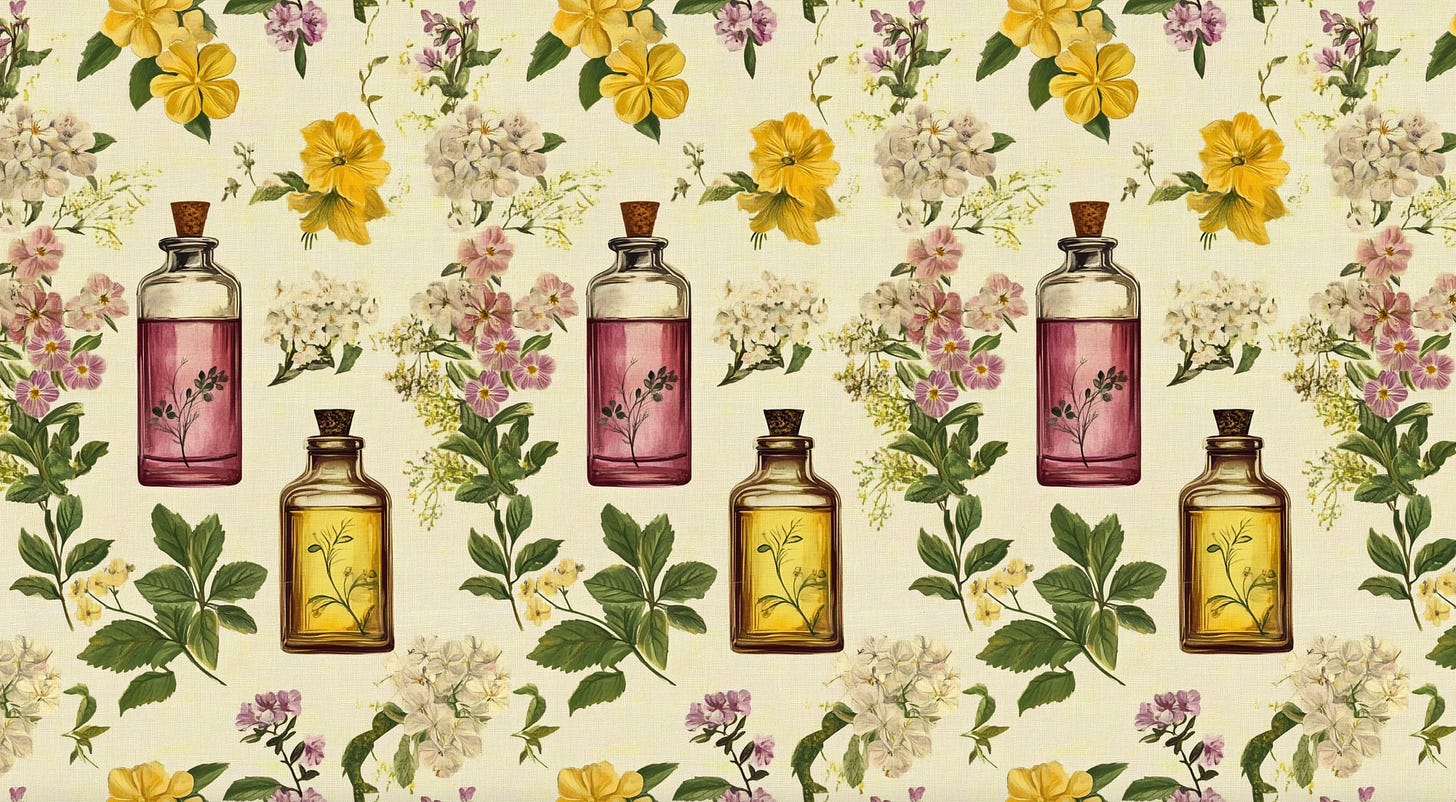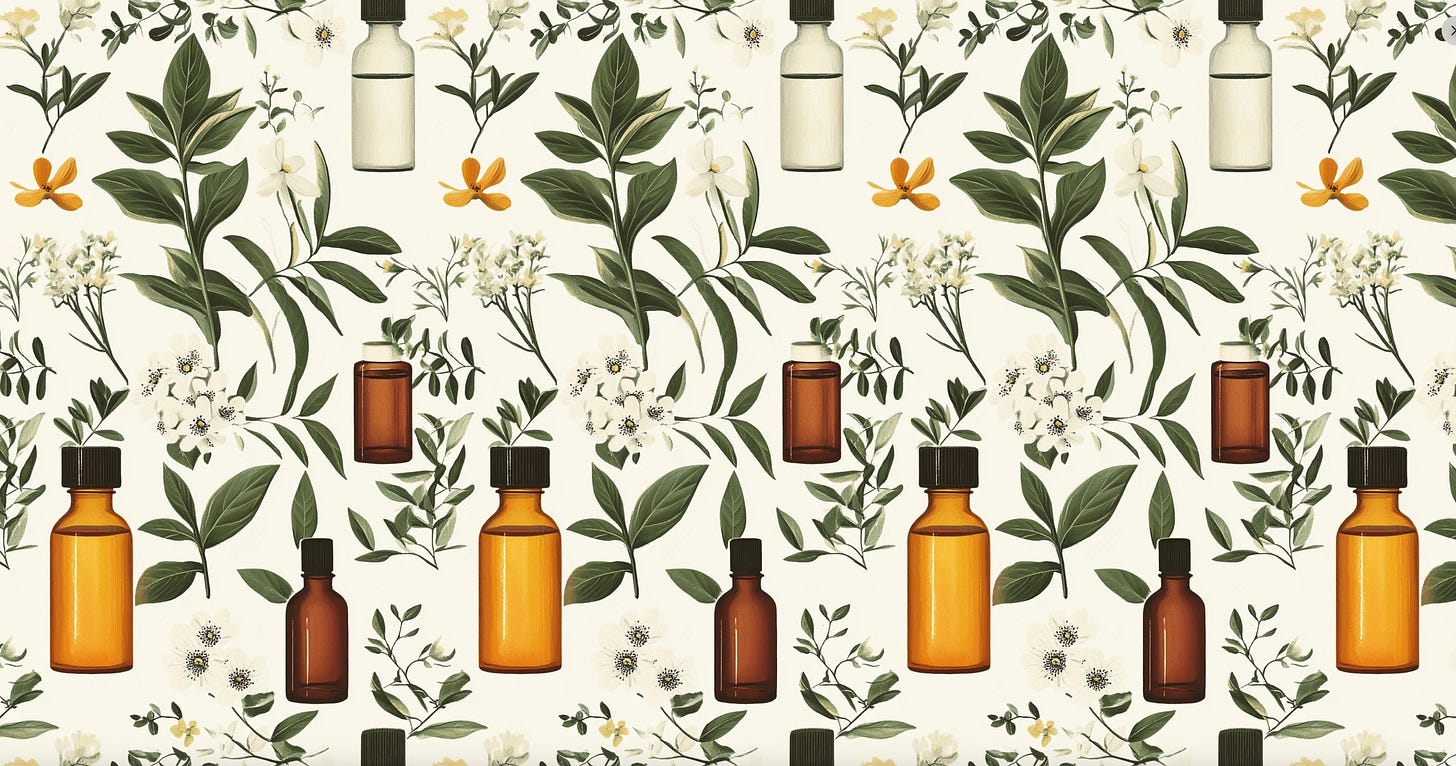I’m new to essential oils and don’t have much experience with them, but I’ve recently learned some fascinating things that I’d love to share. Essential oils have been used for centuries and are valued for their therapeutic properties, both physically and emotionally. Here's what I’ve learned so far about their benefits, history, and even some intriguing conspiracy theories!
5 Key Benefits of Essential Oils:
Stress Relief and Emotional Balance
Oils like lavender, chamomile, and frankincense are known for their calming effects. Used in aromatherapy, they can reduce stress, anxiety, and even help improve sleep quality.Boosting Immunity
Certain oils, such as tea tree, eucalyptus, and oregano, are believed to have antibacterial and antiviral properties that can support the immune system and promote faster healing.Pain Relief and Inflammation Reduction
Peppermint and eucalyptus oils are frequently used to relieve headaches, muscle soreness, and inflammation. These oils are often applied topically (with a carrier oil) to soothe the body.Skincare and Beauty
Essential oils like rose, tea tree, and sandalwood are used in skincare routines to combat acne, moisturize skin, and reduce the signs of aging.Improved Focus and Energy
Citrus oils like lemon and orange can improve mood and increase alertness. Peppermint oil is another favorite for boosting energy and mental clarity.
Historical and Cultural Relevance
Essential oils have a long history, dating back to ancient civilizations like Egypt, China, and India. The Egyptians were one of the first cultures to use essential oils for cosmetics, medicine, and even in embalming practices. In ancient China and India, oils played a significant role in holistic healing traditions like Ayurveda and Traditional Chinese Medicine.
The Greeks and Romans also embraced the use of oils for health, beauty, and in religious ceremonies. Throughout history, essential oils have been seen as sacred and powerful substances.
Conspiracy Theories Surrounding Essential Oils
Interestingly, essential oils have found their place in some modern conspiracy theories. Some believe that large pharmaceutical companies suppress the benefits of essential oils to promote synthetic drugs instead. Others claim that essential oils can cure diseases like cancer, though there’s no scientific evidence to support these extreme claims. While essential oils offer various health benefits, they should complement traditional treatments, not replace them.
How to Acquire Essential Oils
Essential oils are widely available in stores and online. When purchasing, it’s important to look for high-quality, 100% pure essential oils from reputable sources. Some brands to consider are doTERRA, Young Living, and Plant Therapy. Make sure to avoid oils with synthetic additives or fillers. Look for terms like "therapeutic grade," although it’s not a regulated term, so buyer research is essential.
Can You Make Your Own Essential Oils?
Yes, making your own essential oils is possible but time-consuming. The most common method is steam distillation, which requires equipment to heat plant material and capture the essential oil as steam condenses. A simpler method is infusing oils, which doesn’t produce pure essential oils but still captures the essence of herbs or flowers.
Here’s a simple recipe to make an infused oil:
Choose your base oil (olive oil or almond oil works well).
Add fresh or dried herbs like lavender, rosemary, or rose petals to a clean jar.
Cover the herbs with your base oil and let the jar sit in a warm area (like a sunny windowsill) for 2-6 weeks, shaking it gently each day.
Strain the oil through a cheesecloth to remove the plant material, and store your infused oil in a clean, dark glass bottle.
While this method won’t give you pure essential oil, it’s a simple, beginner-friendly way to enjoy the benefits of plants in a soothing oil blend.
Conclusion
Whether you’re looking for relaxation, beauty benefits, or natural ways to support your health, essential oils offer a wide array of uses. Just remember to use them safely and ethically, and always complement them with traditional health treatments when needed.









